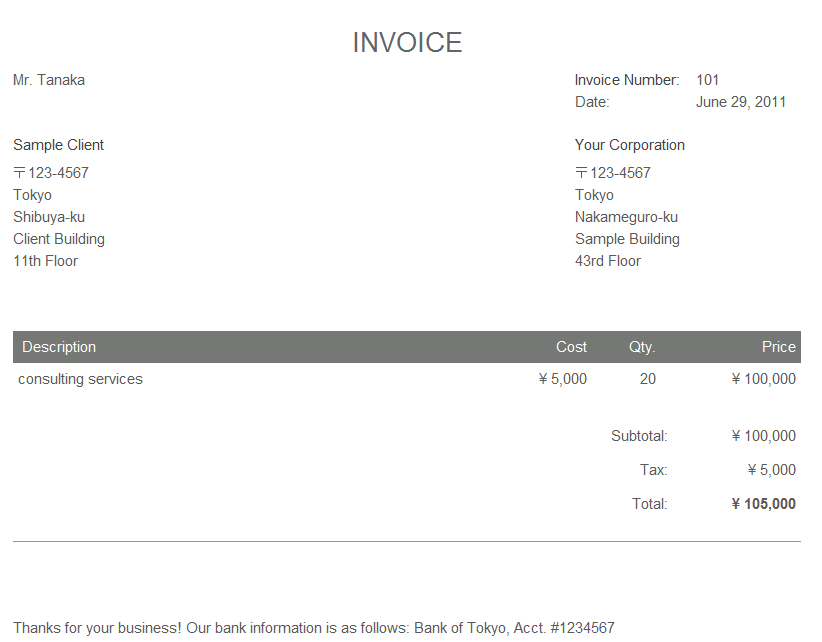Japanese generally accepted accounting practices require several elements in an invoice:
- Name and address of invoicing company / individual
- Name and address of invoiced company / individual
- Date
- Uniquely identifiable invoice number
- Line items specifically identifying every individual product or service charged for, quantities delivered, and cost per unit
- Calculation of tax collected, when appropriate
- Total expected to be paid
In addition, many Japanese companies find it convenient to have information regarding payment method written directly on the invoice. Most traditional Japanese companies pay invoices via bank transfer (“furikomi”) domestically or wire transfer internationally, although recently some companies may also use corporate credit cards. Checks are virtually unheard of as a routine payment instrument in Japan.
Here is a mock invoice for consulting services:
